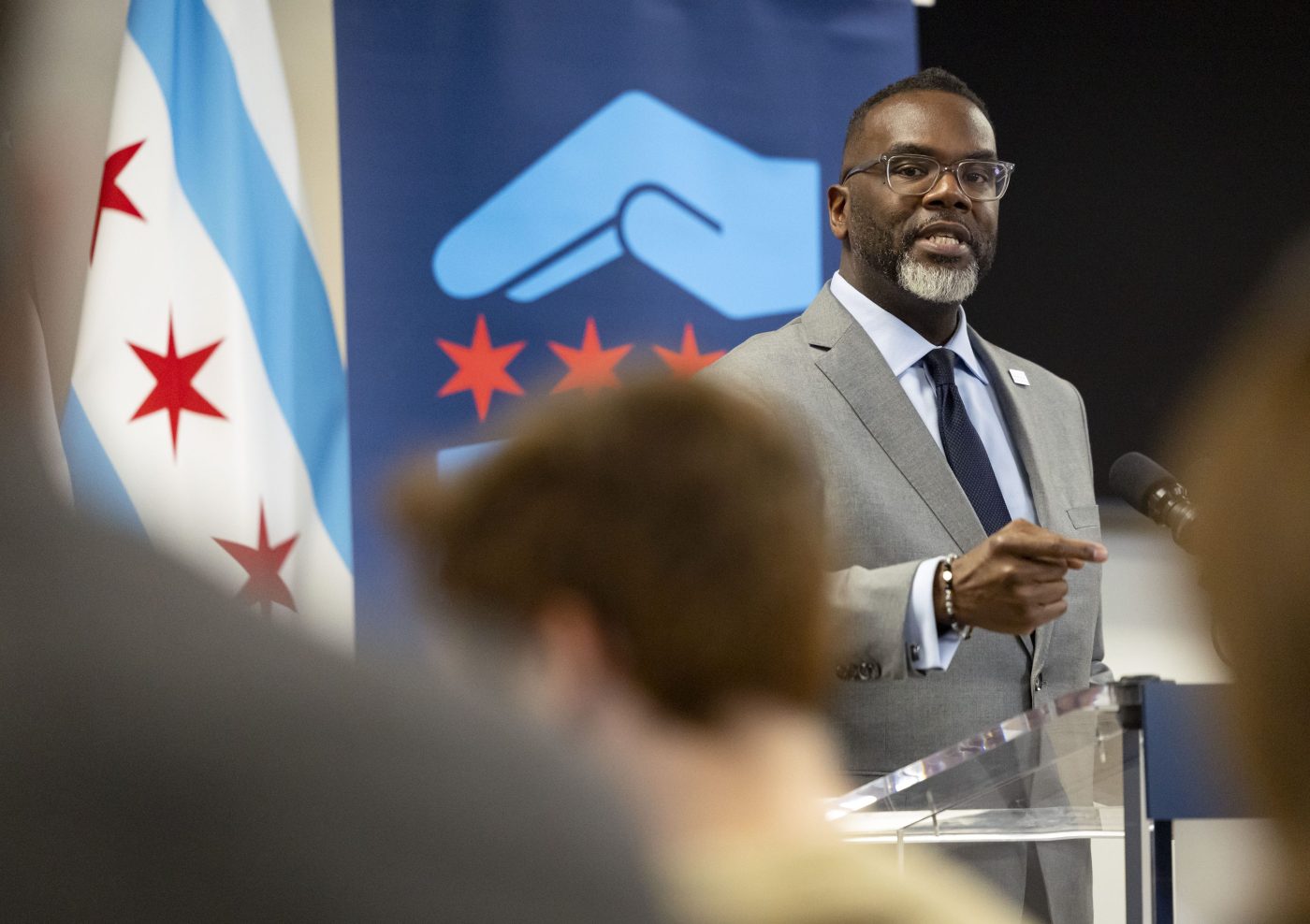Consultants hired by Mayor Brandon Johnson to find ways to save Chicago taxpayers money found themselves caught in the budget crossfire Monday between him and City Council critics who say his 2026 spending plan doesn’t include enough of their recommendations.
Ernst & Young officials who authored a report that included dozens of recommendations on spending changes appeared before the council Budget Committee. Some aldermen frustrated by Johnson’s budget proposal took the hearing as a platform to publicly push for steeper cuts.
“This is a $3 million report that we’ve been saying for free for years,” said Ald. Anthony Beale, a top Johnson critic. “We’ve been saying we need cuts and efficiencies, cuts and efficiencies. We’ve been saying that for years, and you guys have totally ignored that.”
When Southwest Side Ald. Matt O’Shea asked EY Principal Adam Chepenik if he agreed Johnson’s team left “missed opportunities” in its proposal, Chepenik carefully avoided taking a stance.
“I think the options in the report identify options and opportunities to capture what is not currently captured,” Chepenik said. “The report was designed to provide as many options as possible, and in terms of how things are implemented and the timeline that they take to implement, it is in the city’s discretion.”
A coalition of moderate aldermen coerced Johnson and his allies to schedule the Monday hearing by filing for a full City Council meeting. EY’s report, the result of an initial $3.2 million taxpayer-funded contract with the company, became a flashpoint in budget debates when Johnson initially didn’t publicly release it.
Johnson’s team eventually shared about a hundred pages of the report, which include dozens of recommendations that the firm said could eventually generate $530 million to $1.4 billion in savings. But Johnson argued Monday there is no money being left on the table.
“We hear a lot of calls for cuts, and people like to refer to them as ‘efficiencies,’ but folks get real quiet when we ask them to provide some of the specifics,” Johnson told reporters during a news conference, nodding to the city workers who cleared snow Monday morning. “The reality is, our city services are essential.”
Budget Director Annette Guzman told aldermen Johnson’s 2026 budget includes about 70 ideas recommended by EY. But many will take years to implement, she argued.
“The city didn’t get here overnight, and the structural reform won’t happen overnight, but you have to begin somewhere,” she said.
But the “road map” report could lead to a number of major budget fixes in future years, Guzman said. She pointed to a potential $100 million from real estate consolidation and vacant land sales, $21 million annually in overtime cost recovery from charges to special events hosts, and $120 million with job centralization efforts.
Some daunting changes, such as alterations to city employee benefits, would only be possible with union negotiations.
Budget Director Annette Guzman speaks alongside Mayor Brandon Johnson on Nov. 10, 2025, at Chicago’s City Hall. (Brian Cassella/Chicago Tribune)
Ald. Pat Dowell, Johnson’s handpicked Finance Committee chair, urged her colleagues and Guzman to find ways to reduce spending.
“My constituents are looking for holding the line on this budget,” she said. “Not expanding programs, not adding new programs and being very efficient in how we utilize our dollars.”
Johnson’s council opponents aired frustration during the hearing. They criticized the mayor for looking to expensive outside help to find cuts and accused him of dragging his feet on installing solutions.
The Monday hearing marked the start of a third week of public budget discussions in the City Council, with more hearings set to resume Wednesday. It remains unclear how Johnson and aldermen will reach a deal, though many in City Hall expect negotiations to stretch into December for a second year in a row.
A sign of the political maneuvering Johnson might need to use to pass a final budget appeared Monday when the council’s Finance Committee advanced a $12 million tax incremental financing spend on an Ogden Park field house. The field house has been a key focus for Ald. David Moore for years.
Johnson’s promise to support the measure was crucial to winning Moore’s support on the city’s 2025 budget last fall, the alderman said. But last year’s big sweetener finally getting the green light wouldn’t sway his vote in this year’s budget vote, he said.
“I have an ask every day,” Moore said.
Asked about the field house, Johnson said the spending is “part of our vision to build a safe and affordable big city.”
“We have to invest in our public spaces, particularly at a time in which the Trump administration has demonstrated a great deal of animus toward what should be designed for the public good,” he said.
Much of the current City Hall budget debate is centered around Johnson’s proposal to levy a $21-per-employee head tax on large companies, a measure he has cast as a tax-the-rich effort to be used for public safety spending.
But even more critical to Johnson’s budget plan is the over $1 billion TIF surplus that would also send an estimated $552 million to Chicago Public Schools, plus another $20.6 million for its building improvement fund.
Interim CPS CEO Dr. Macquline King took the unusual step Friday of urging school families in an email to contact their aldermen and ask them to support the surplusing “to prevent mid-year cuts.”
The money is key to the district’s financial survival through the rest of the year, both the district and the Chicago Teachers Union have said, but many aldermen expressed concerns such a large surplus would threaten active or pending economic development projects in their wards.
“While we are grateful that the Mayor and a majority of City Council members now support providing additional revenue to CPS to prevent mid-year cuts, it is not a done deal,” King’s note said. “The Mayor and the City Council still have to pass a final budget for the City and we need that budget to include this critical funding for our schools.”
If aldermen significantly cut back on the surplus, the city would miss out on its full $175 million reimbursement for nonteacher CPS employee pension costs.
Previous CPS staff and leaders told the Tribune that it’s not unprecedented for district leadership to ask parents to lobby for votes, but in the past, their efforts were focused on legislators in Springfield.
Chicago Tribune’s A. D. Quig and Alice Yin contributed.
https://www.chicagotribune.com/2025/11/10/aldermen-report-budget-cuts-mayor-brandon-johnson/


